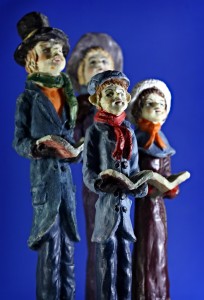I don’t know about you, but I love to hear the details of the Christmas story over and over!
I love to tell the story; ‘tis pleasant to repeat
What seems, each time I tell it, more wonderfully sweet.
I love to tell the story, for some have never heard
The message of salvation from God’s own holy word!
I love to tell the story, ‘twill be my theme in glory
To tell the old, old story of Jesus and his love!
In the Christmas story, everything has meaning. God is the master of details!
At the appointed time, God tapped Caesar Augustus on the shoulder so that he would call for the census. Joseph, being of the house and lineage of David, had to travel from Nazareth to Bethlehem. It was an inconvenient time since Mary was with child. It was a hard journey for a pregnant lady … some 80 miles. All of this was to fulfill the prophecy that Jesus would be born in Bethlehem!
Jesus was born in Bethlehem.

But you, Bethlehem Ephrathah, though you are small among the clans of Judah, out of you will come for me one who will be ruler over Israel, whose origins are from of old, from ancient times.
He will stand and shepherd his flock
in the strength of the Lord,
in the majesty of the name of the Lord his God.
And they will live securely, for then his greatness
will reach to the ends of the earth. And he will be their peace.
Bethlehem is the City of David.

In Matthew we read the lineage of Jesus … the son of David, the son of Abraham. When the angel came to Mary, he said, “You will be with child and give birth to a son, and you are to give him the name Jesus. He will be great and will be called the Son of the Most High. The Lord God will give him the throne of his father David, and he will reign over the house of Jacob forever; his kingdom will never end.” (Luke 1:31 – 33)
As an aside, it is interesting to note that the name, Bethlehem, means “house of bread.”
Jesus declared, “I am the bread of life. He who comes to me will never go hungry, and he who believes in me will never be thirsty.” (John 6:35)
Bethlehem was also home to the sacred temple flocks.
Lambs were specifically raised in this area for the sacrificial system – the first-born male lambs were considered sacred. It was John the Baptist who said, “Look, the Lamb of God, who takes away the sin of the world!” (John 1:29)
Notice that Jesus rode into the city of his birth on a donkey … and into the city of his death on a donkey … just notice.
Even the lowly circumstances of Jesus’ birth were appropriate. The stable – a place for livestock, was an expected place for a birth of a lamb. The manger was a feeding trough – perfect for the “bread of life!”
The announcement of his birth was also fitting.
Notice how God announced the birth of his son to every segment of society.
The wise men, gentiles, followed the star to Jerusalem. Herod and the Jewish religious leaders heard about the birth from the Wise Men. The angels visited the shepherds – who better to know about the birth of a sacred lamb than the shepherds!
The angels said, “Do not be afraid. I bring you good news of great joy that will be for all the people. Today in the town of David a Savior has been born to you; he is Christ the Lord. This will be a sign to you: You will find a baby wrapped in cloths and lying in a manger.” (Luke 2:10 – 11)
Angels, messengers of God, announced the birth of the Son of God. They identified the Son of God as
the Savior … redeemer,
Christ … the anointed one, Messiah,
and Lord … the sovereign ruler!
Notice how the key people in this story responded to the birth of Jesus!
Joseph responded appropriately to the birth of Jesus even though at first he questioned the pregnancy! He did what the angel of the Lord commanded him … took Mary to be his wife, and named his son, Jesus!
Mary also responded appropriately. At the announcement that she was the chosen one, she humbly responded, “May it be to me as you have said.” And at the birth, she “treasured up all these things and pondered them in her heart.”
The Wise Men followed the star, brought gifts, and bowed down to worship the Christ child.
The shepherds, after the angel visitation, hurried to find the baby. When they saw him, they spread the word! They returned to their fields, “glorifying and praising God for all the things they had heard and seen!”
The invitation is for us, today in this 21st century, to respond appropriately!
O come, let US adore him! O come, let us ADORE him! O come, let us adore HIM! Christ the Lord!
